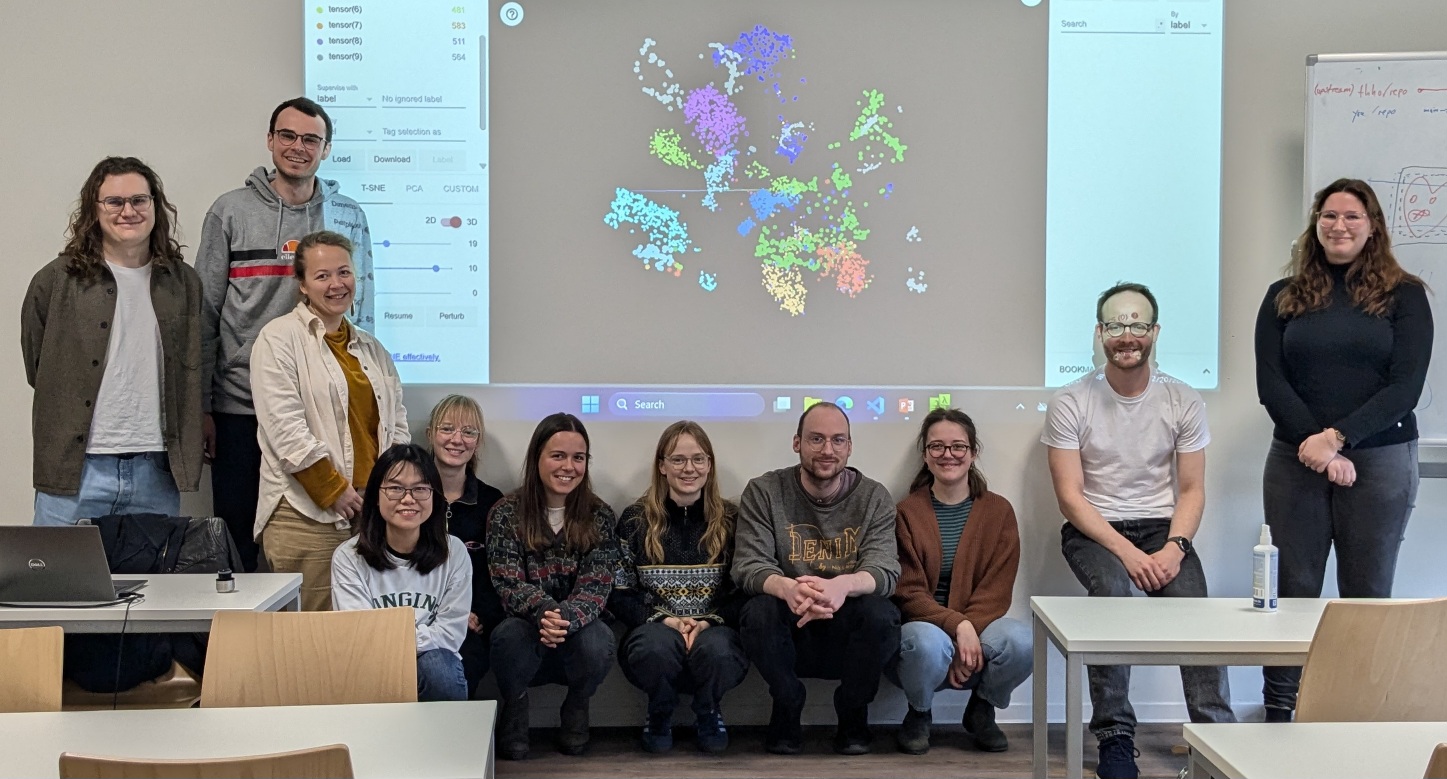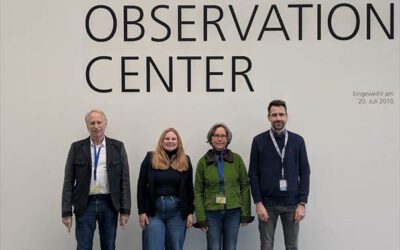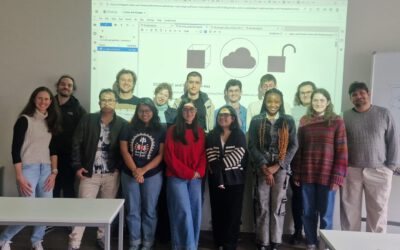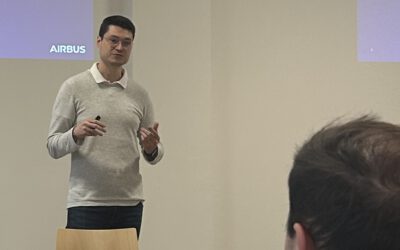This week Thorsten Hoeser, an expert in deep learning and data science, taught AI methods in remote sensing at our International EAGLE Earth Observation MSc Program. In this special module, Thorsten covered essential topics on the cutting-edge techniques for implementing scalable deep learning pipelines using PyTorch on the DLR High-Performance Computing cluster, Terrabyte.
Thorsten’s sessions dived into advanced areas of deep learning, providing students with hands-on experience in utilizing the high-performance resources of the DLR cluster to train models efficiently at scale. The focus of the module included:
-
Implementing Scalable Deep Learning Pipelines with PyTorch: Students learned how to leverage the DLR Terrabyte cluster to accelerate model development and handle massive datasets for Earth observation tasks.
-
Experiment Tracking and Training Metrics Interpretation: Thorsten guided students on how to manage and track their experiments effectively. Participants learned to interpret key training metrics for improved decision-making and model performance optimization.
-
A Data-Centric Approach to Model Training and Improvements: Moving beyond traditional model-centric views, Thorsten emphasized the importance of data quality and optimization. This perspective will enable students to understand how to refine and improve models through careful data manipulation and understanding.
This training, powered by the DLR Terrabyte cluster, aims to equip students with the skills needed to implement robust, scalable, and efficient deep learning solutions, critical for addressing complex Earth observation challenges.
you may also like:
EOCap4Africa Training in Kinshasa
This week, 14 students are attending a test run of our Remote Sensing module on Remote Sensing for Biodiversity Conservation at the University of Kinshasa. This module is part of the EOCap4Africa project (funded by the Federal Agency for Nature Conservation, lead Dr....
KI4Stereo – Hybrid kick-off meeting at DLR
KI4Stereo – Hybrid kick-off meeting at DLR: AI-based analysis of stereo image data for tree monitoringOn January 23rd, 2026, a hybrid kick-off meeting was held at DLR to officially launch the research project KI4Stereo (funded under the KMU-innovativ programme,...
Sebastian Buchelt successfully defends PhD on SAR-based monitoring of alpine permafrost
We are very pleased to congratulate our PhD student Sebastian Buchelt on his successful defense of his dissertation, “Potential of Synthetic Aperture Radar time series for mapping and monitoring of small-scale periglacial processes in alpine environments.” His work...
New publication explores how forest structure shapes beetle communities
A new peer-reviewed publication investigates how between-patch heterogeneity and old-growth forest attributes influence the structure of beetle metacommunities in temperate forests. The study, led by Dr. Oliver Mitesser from the Biology Department, combines...
Cubes & Clouds – Cloud-Native Open Data Science for Earth Observation
From 9–13 February 2026, EAGLE Master students took part in the block course “Cubes & Clouds – Cloud Native Open Data Sciences for Earth Observation”, taught by Dr. Insa Otte, Steve Hill, and Peter Zellner (DLR). The course introduced key concepts such as data...
From Earth Observation to Industry: Insights from a graduate at Airbus
Dr. Marius Philipp recently returned to our EORC at the University of Wuerzburg to share insights from his work at Airbus, where he spoke about his work in AI, data science, and applied Earth Observation. His talk highlighted how analytical thinking, remote sensing...









